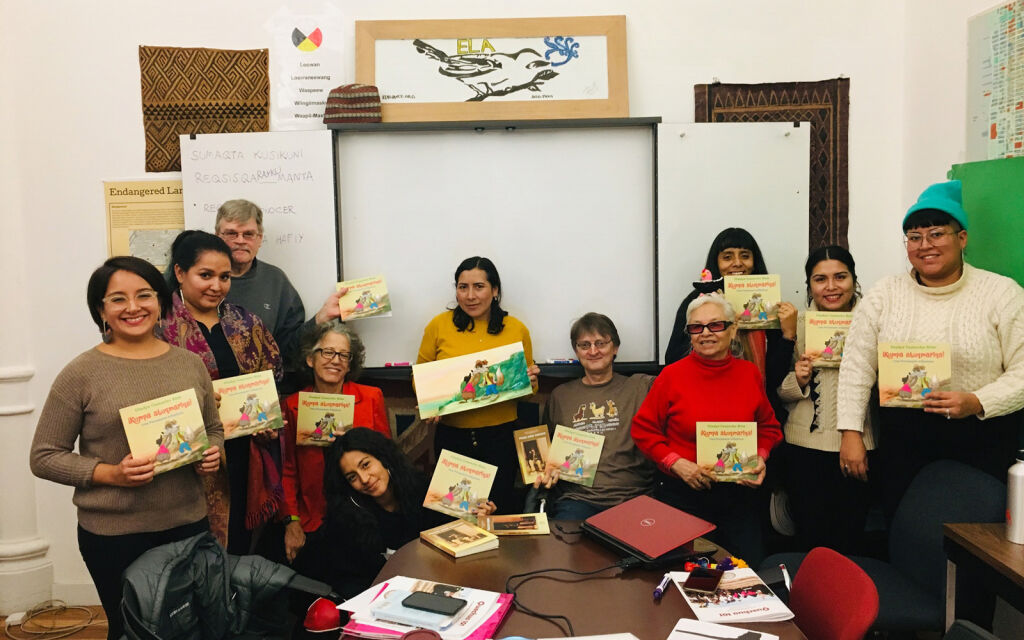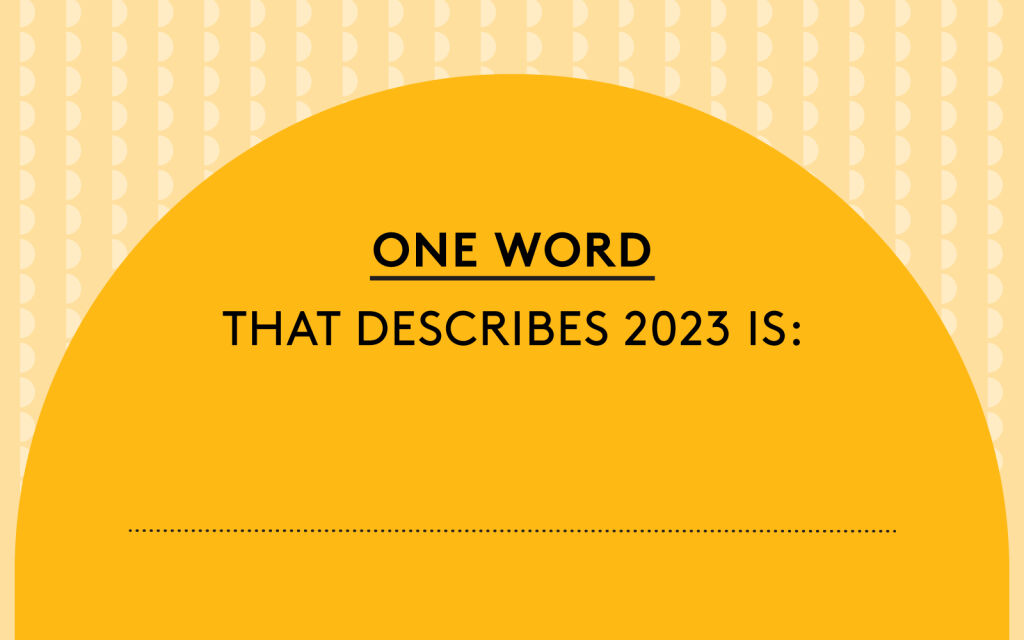Singular “They” and Language Beyond the Gender Binary: Q&A with Kirby Conrod
With nonbinary and trans identities becoming more mainstream, pronouns have increasingly become a hot topic — particularly singular “they,” which is favored by many nonbinary people. While singular “they” has been around for hundreds of years, few studies have been published on its use as a nonbinary pronoun. Now, a growing group of dedicated linguists is determined to change that. Swarthmore College linguistics professor Kirby Conrod is one of several researchers interested in the topics of pronoun usage and nonbinary identities. They spoke to Planet Word about their research, “gender expansive” language, and global efforts to make languages more inclusive of marginalized genders.
Q: What are pronouns and how do they relate to gender?
A: Pronouns are a strategy that languages use so we don’t have to say really long names or descriptions over and over again. Most languages have some kinds of pronouns, but they don’t all share universal properties — which is why I like to describe them as a strategy rather than a part of speech. Pronouns only really relate directly to gender in a minority of the world’s languages. (English is one of the famous ones, maybe you’ve heard of it?) We have different ways of referring to someone based on something kind of related to the person’s gender — but it’s not exactly the same as gender. We use “he” for men, certain human babies, tree branches that knock our hat off when it’s windy, Data from Star Trek, and many orange cats. We use “she” for drag queens who are slaying, women who are just trying to get a cup of coffee, some other human babies, knitting projects, and a lot of small dogs. Are those gender? Sort of! They’re not unrelated!
One better way to think of it is that the “gender” of the pronoun is serving two purposes. First, it helps us keep track of who we’re talking about, especially if there are a lot of different people we could be referring to. And second, it gives us a little bit of social information about the person, which can be useful. Calling someone “they” doesn’t necessarily tell you what that person’s gender is, but it tells you some social information nonetheless.
Q: A significant chunk of your research is about singular “they.” What makes that pronoun so interesting?
A: Singular “they” is super interesting to me for two big reasons. The first reason, I’ll be honest, is that I’m nonbinary, and I started using they/them pronouns at the same time that I started grad school in linguistics. Being a linguistics researcher meant my language radar was always set to maximum, and I couldn’t help but notice the way people really struggled to use “they” for me, especially for those first few years. I wanted to know why that was happening — was it about my gender presentation, or was it something about the pronoun itself? A number of people around me insisted that they had some sort of linguistic mental block around using “they” for a single person, and that really piqued my curiosity.
The second reason was that people were saying somewhat inconsistent things. A person would tell me that they struggled to call me “they,” but then they’d use “they” to talk about a student or something. So I was convinced that there was some linguistic difference between using “they” to talk about a general person, and “they” to talk about a specific person. And, amazingly, that’s what I found in my dissertation research — almost everyone who speaks English can use “they” to refer to a general singular person, like “the ideal student always turns in their homework” or “some student left their backpack here.” But not everyone seemed to be able to use “they” to refer to a single specific person, like “my favorite student left their backpack here” or “Kirby always turns in their homework.” My data tracked with what people had been trying to tell me: the specific use was still kind of new in 2018 when I collected my data, and not everyone had quite caught up with the language change. It’s further along now, five years later, and a lot of the research on singular “they” has found the same thing that I did — it’s still in the process of shifting to allow this specific use.
Q: Why do you think there is opposition to expanding pronoun usage? Have you observed any trends regarding usage in your research?
A: Fundamentally I think that when people want to talk about whether a language should or shouldn’t change, they’re having a political conversation, not a linguistic one. Languages change — it’s what they do. The change in singular “they” to allow for specific uses has been underway for decades, so the people opposing it are revealing that they’re angry about something that’s already happening. It is connected to gender — most often, it’s connected to the idea that there are exactly two genders, and everyone is in one group or the other, and you aren’t allowed to change or challenge those categories at all.
My own research with Byron Ahn and colleagues, and also findings by Evan Bradley, Ellis Hernandez, and a lot of other awesome singular-they-linguists, have shown that people who think this way do find it less acceptable to use “they” for a specific single person. When we ask these questions on surveys, it’s questions like “do you believe there are more than two genders?” We’re not shy about it at all. And if people believe that, then that correlates really strongly with what they’re doing linguistically. Their language is a reflection of their political ideologies.
Q: There have long been movements for gender neutral language, but in the past decade we’ve seen increased use of the phrase “gender expansive” language. What are the differences between the two, and why do these differences matter?
A: When someone says they want something to be gender neutral, they might mean “there are exactly two genders, men and women, and both men and women are equally allowed to use this word.” Or they might mean “gender is fake, anyone can do whatever they want forever.” It’s a less specific political statement. When someone says gender expansive, I think they’re intentionally trying to distance themselves from that first view, and move more towards the second. I think the differences matter in that, just scientifically and descriptively speaking, it is objectively false to state that there are only two genders, or that there are only two sexes. These are both just bad science. So when someone says “gender expansive,” I feel personally more confident that they’re not stuck in these old conservative ideologies that are anti-science.
Q: Many of the world’s languages have rigid grammatical gender systems. Can you talk about some of the movements to make these languages more inclusive of marginalized genders (and particularly nonbinary people)?
A: So first, I think “grammatical gender” is a horribly confusing name. I like to call those systems “noun class systems,” because it’s just a way that the languages sort nouns. If you have a noun that ends in -o you’re going to want an adjective that ends in -o too. I want those to be separate from what we think of as social gender, which is talking about peoples’ gender identities in the real world.
That said, noun class systems draw on and are related to social gender. And thankfully, people will always just use the linguistic resources that are available to them to talk about the stuff they need to talk about. Nonbinary speakers of Spanish and French are already doing interesting stuff like combining pronouns (él + ella = elle, in Spanish) or extending already-existing noun endings (estudiante –> amique –> -e endings more generally, again in Spanish). I think these things would happen regardless of what any academics say or do about it, but it’s always nice to see those movements get more official recognition. It’s nice to not have to fight about noun endings every time you want to go to the post office or write a school essay or whatever.
Also, languages with different structures have to use different strategies. Orit Bershtling’s research on genderqueer Hebrew speakers, for example, found that these speakers had to do stuff to avoid gendering themselves with the way verbs work in Hebrew. Some of them just avoided a whole verb tense, and others swapped between masculine and feminine marking in every other verb. Others just picked whatever ending is the opposite of what people assumed their gender was. Basically, no matter what the language, people will figure out some strategy to be queer in that language — and it’s going to look different from language to language. It’s definitely not just pronouns.
Q: What can people do to get better at using others’ pronouns?
A: Practice! A lot!!
This is especially important in languages like English, where we have relatively few pronouns and tend to mentally erase them, because they’re function words. In order to get your brain to override whatever your past experiences were, you have to practice a lot. If you’re 30 years old, then you’ve probably been saying pronouns for over 28 years, and you might be saying literally hundreds every single day. You have tens of thousands of instances of the old pronouns, so you have to flood your brain with the new pronouns you’re trying to learn.
The other big tip is that almost anything that works well for second language learning will work well for learning new pronouns. Flashcards, stories, practicing conversations with a partner, having someone give you positive reinforcement — these are all going to help.
Q: Are there any resources you would like to share with people who want to learn more about pronouns and efforts to make language more inclusive?
A: Yes! I want to point people towards the Gender In Language project, which is a project working to document what languages other than English are doing for nonbinary folks. For beginners, I really like Archie Bongiovanni’s comic book, A Quick and Easy Guide to They/Them Pronouns, and for language nerds, Dennis Baron’s book, What’s Your Pronoun?. I’ll also somewhat shyly link my blog, and this episode of Lingthusiasm that I was on. Also, the entire podcast Gender Reveal — they have a “starter pack” of episodes about language (fair warning, I’m a guest on there too — but listen to the other episodes!).



